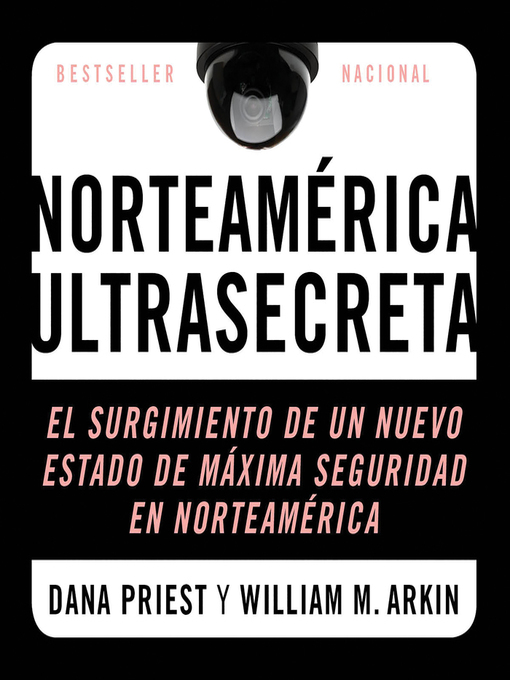- Manga Mania
- No wait, no problems
- What's new?
- Popular titles
- Check these out!
- See all ebooks collections

En este libro Norteamérica Ultrasecreta (Top Secret America) los galardonados periodistas Dana Priest y William M. Arkin han descorrido la cortina que cubre este universo clandestino. Desde las empresas y agencias que vigilan a los ciudadanos norteamericanos, los comandantes militares creando la primera "ciudad ultrasecreta" en los Estados Unidos, a un ejército secreto operando dentro de la milicia norteamericana pero con una clasificación secreta más elevada que la de la CIA, este nuevo pulpo de seguridad nacional se ha convertido en un auto-sostenible "cuarto poder" del gobierno. Esta es una profunda labor de periodismo de investigación. Norteamérica Ultrasecreta (Top Secret America) revela un fascinate y a la vez perturbador recuento del surgimiento de un gobierno descontrolado y una guerra contra el terrorismo descarrilada, en un mundo pos-11 de septiembre.
-
Creators
-
Publisher
-
Release date
February 20, 2018 -
Formats
-
OverDrive Listen audiobook
- ISBN: 9781549115585
- File size: 387430 KB
- Duration: 13:27:08
-
-
Languages
- Spanish; Castilian
-
Reviews

Loading
Why is availability limited?
×Availability can change throughout the month based on the library's budget. You can still place a hold on the title, and your hold will be automatically filled as soon as the title is available again.
The Kindle Book format for this title is not supported on:
×Read-along ebook
×The OverDrive Read format of this ebook has professional narration that plays while you read in your browser. Learn more here.